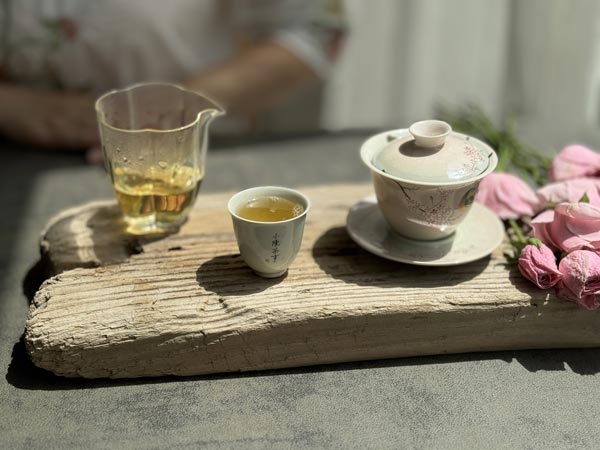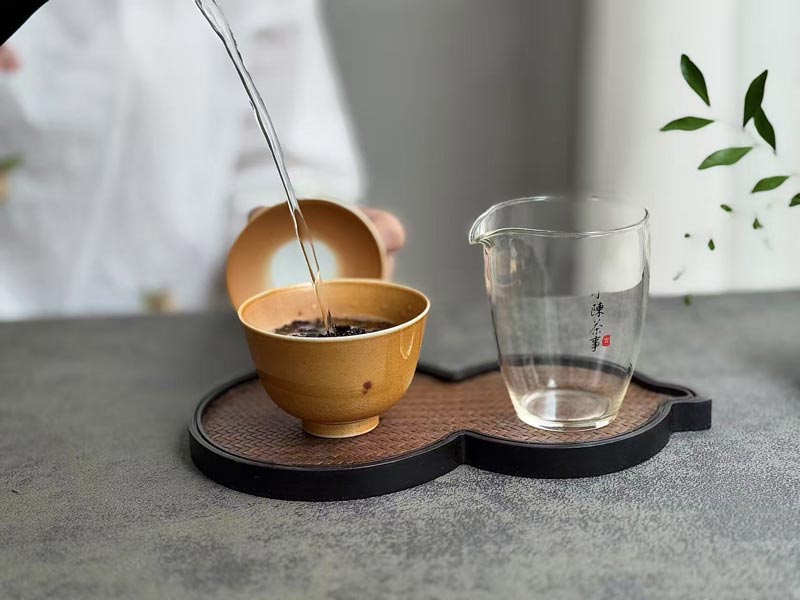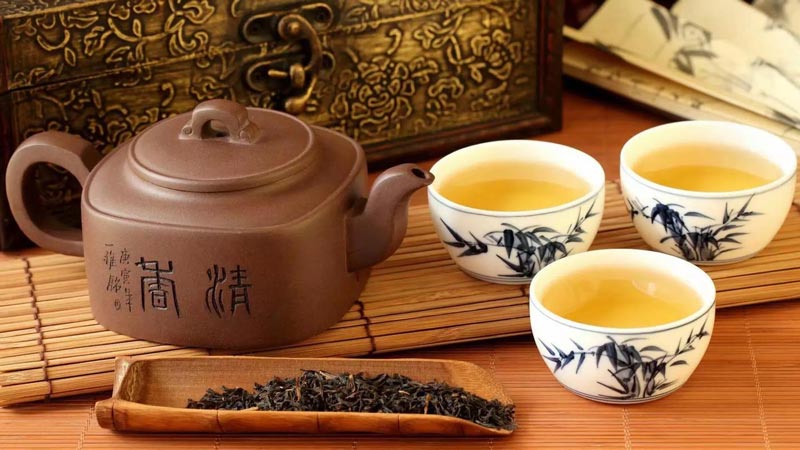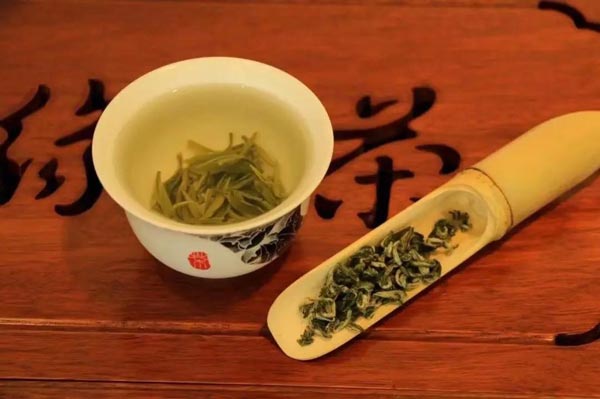Have you ever experienced this while drinking tea? It's supposed to be a very good tea, but the moment you taste it, it's so bitter you frown, and so astringent it makes your tongue numb.
This is a very perplexing problem. You buy expensive tea leaves, but the brewed tea tastes like Chinese medicine—it's truly frustrating.
Later, you discover that the bitterness and astringency of tea actually have reasons, and often, it's something we create ourselves.

01. Tea naturally carries a "bitterness gene"
You've probably heard of tea polyphenols. They are the main culprit behind the bitterness and astringency of tea.
Ester catechins, in particular, have a very strong astringent effect. As soon as they touch your tongue, they start causing trouble, making you feel that astringent, dry sensation.
And then there's caffeine.
Yes, that's what makes you feel alert.
It not only invigorates you but also imparts a distinct bitterness to your taste buds. The higher the temperature, the faster it dissolves, and the more pronounced the bitterness. Some tea varieties are inherently "bitter."
For example, large-leaf teas, like those used for Pu-erh tea, are rich in internal substances and have a high polyphenol content, naturally making them more prone to bitterness than small-leaf varieties like Longjing.

02. Environment and Processing Determine the Tea's "Temperament"
Did you know?
The same tea tree, grown in different places, can taste completely different.
In areas with strong sunlight and high temperatures, tea trees will frantically synthesize polyphenols to protect themselves. The result is that the tea becomes increasingly bitter. This is similar to how people become more sensitive under stress.
Conversely, high-mountain teas, due to the large temperature difference between day and night and the slow growth of the tea trees, have ample time to accumulate "sweet" substances like amino acids, resulting in a much milder bitterness.
The processing method is also crucial. If green tea isn't properly de-fermented, the polyphenol oxidases are still "secretly working," continuing to produce bitter substances. Black tea, on the other hand, undergoes full fermentation, causing the polyphenols to oxidize and transform, naturally reducing bitterness.
03. Your Tea Brewing Method Might Be a "Bitterness Machine"
Speaking of which, we need to "expose" some common tea-brewing misconceptions. Using too high a water temperature is the most common problem.
Many people believe that boiling water is necessary for strong tea. However, brewing green tea with 100℃ water forces the tea leaves to release all their bitter substances.
The correct method is: use 80-85℃ water for green tea, 85-90℃ for white tea, and boiling water is suitable for black and dark teas.
Stewed for too long is also a major no-no. Some people brew tea like they're boiling Chinese medicine, steeping it for ten minutes or more. The longer the tea leaves steep, the more bitter substances dissolve, resulting in a bitter "essence" in the final product.
And then there's the amount of tea leaves used. Many people believe that the more tea leaves you add, the better, resulting in a tea soup that's as thick as ink and unbearably bitter.

04. Bitterness and Astringency are Also a "Personality" of Tea
However, a moderate amount of bitterness and astringency is actually a normal component of tea soup.
Have you ever noticed that many good teas share a characteristic: a slight bitterness and astringency upon first sip, but it quickly dissipates, followed by a sweet aftertaste at the back of the tongue, a smooth and mellow sensation that slowly spreads throughout the mouth?
This is the legendary "bitter before sweet." If a tea has absolutely no bitterness or astringency, it may lack complexity.
The key is that this bitterness and astringency must "dissipate."
If the bitterness and astringency linger on the tongue for a long time, it indicates either a problem with the quality of the tea leaves or an incorrect brewing method.
05. How to Make Your Tea Less "Bitter and Unpleasant"?
There are actually several tips to reduce the bitterness of tea:
- Adjust brewing parameters: Lower the water temperature, shorten the steeping time, and reduce the amount of tea leaves. These three adjustments can solve about 80% of the bitterness problem.
- Choose the right type of tea: If you are particularly averse to bitterness, you can drink more black tea or oolong tea, which have a higher degree of fermentation, or choose spring tea or high-mountain tea.
- Pay attention to storage: Dampness or improper storage of tea leaves can also intensify bitterness. Sealing, drying, and keeping it away from light are basic requirements.

Spring tea, due to its higher amino acid content, is naturally sweeter than summer or autumn tea.
Ultimately, the bitterness of tea is not a terrible thing. Understanding its origin and mastering the correct brewing method allows you to find the perfect balance between bitterness and sweetness.
After all, life is like tea, bitter at first, then sweet—perhaps this is the lesson tea wants to teach us.

%20--%3e%3c!DOCTYPE%20svg%20PUBLIC%20'-//W3C//DTD%20SVG%201.1//EN'%20'http://www.w3.org/Graphics/SVG/1.1/DTD/svg11.dtd'%3e%3csvg%20version='1.1'%20id='图层_1'%20xmlns='http://www.w3.org/2000/svg'%20xmlns:xlink='http://www.w3.org/1999/xlink'%20x='0px'%20y='0px'%20width='256px'%20height='256px'%20viewBox='0%200%20256%20256'%20enable-background='new%200%200%20256%20256'%20xml:space='preserve'%3e%3cpath%20fill='%23FFFFFF'%20d='M194.597,24.009h35.292l-77.094,88.082l90.697,119.881h-71.021l-55.607-72.668L53.229,232.01H17.92%20l82.469-94.227L13.349,24.009h72.813l50.286,66.45l58.148-66.469V24.009z%20M182.217,210.889h19.566L75.538,44.014H54.583%20L182.217,210.889z'/%3e%3c/svg%3e)